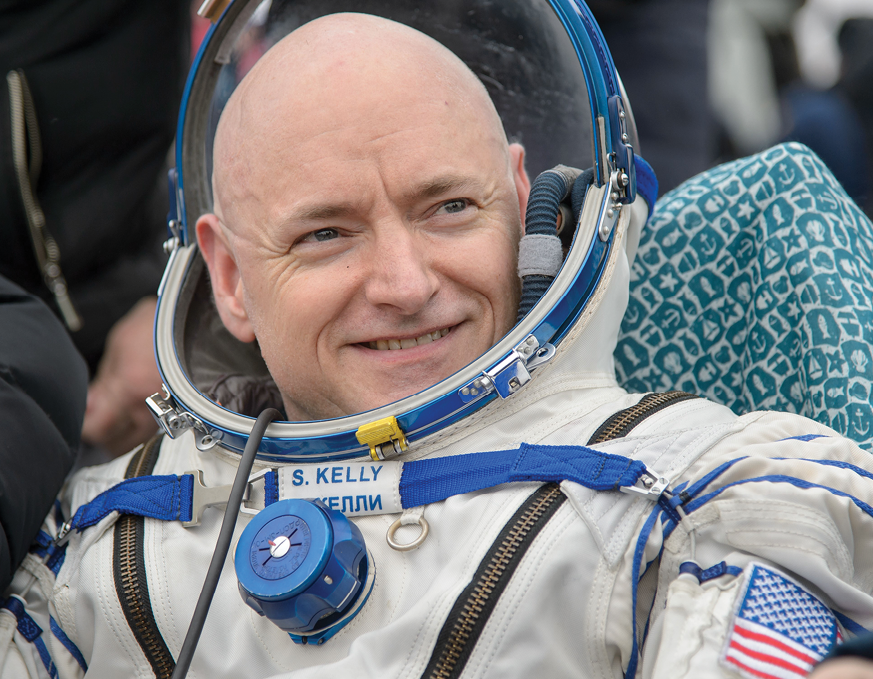- Home
- Media Kit
- Current Issue
- Past Issues
- Ad Specs-Submission
- Ad Print Settings
- Reprints (PDF)
- Photo Specifications (PDF)
- Contact Us

![]()
ONLINE


Scott Kelly
Endurance
Editors’ Note
Scott Kelly (scottkelly.com) is a former military fighter pilot and test pilot, an engineer, a retired astronaut, and a retired U.S. Navy captain. A veteran of four space flights, Kelly commanded the International Space Station (ISS) on three expeditions and was a member of the year-long mission to the ISS. In October 2015, he set the record for the total accumulated number of days spent in space, the single longest space mission by an American astronaut. Kelly is also the author of The New York Times best seller, Endurance: A Year in Space, a Lifetime of Discovery.
Did you know at an early age that you wanted to be an astronaut?
No. I was such a poor student that being an astronaut or working for NASA was not even a dream for me. I was interested in space flight like many kids, but not in any real or tangible way. It wasn’t until I was a struggling college student that I discovered Tom Wolfe’s book, The Right Stuff, which inspired me to pursue a career in the military as a pilot and later an astronaut.
How critical is it to continue to invest in and build out the United States space program?
I think it’s critical. NASA funded and developed technology is part of the reason we are as advanced as we are today. There are many real benefits of NASA based ISS research, and of course the intangible benefit of inspiring generations of not only Americans, but all people around the world, to see that we are capable of doing challenging things if we work together and never, ever give up.
“Resilience has been very critical for me.
I was diagnosed with prostate cancer after my second flight and was surgically treated and then went on to fly two long duration flights despite many thinking that it wasn’t possible.”
What interested you in writing the book Endurance and what are the key messages of the book?
I thought my experience in space for nearly a year would be an interesting read. As it turns out, the book ended up being more about a kid that couldn’t do his homework but somehow found inspiration and a path to success through sheer force of will and endurance.
What have been the keys to your leadership and success in your profession?
I think of leadership as a situationally dependent thing. Sometimes it’s best to delegate decisions to the experts, sometimes a collaborative approach works best – mostly I gather opinions and make decisions. Rarely is an authoritarian approach a good one, but sometimes it’s necessary to “grab that fire extinguisher and start spraying.”
How do you define resilience and how critical has resilience been to the success that you have achieved in your career?
Resilience means not letting setbacks stand in your way. Resilience has been very critical for me. I was diagnosed with prostate cancer after my second flight and was surgically treated and then went on to fly two long duration flights despite many thinking that it wasn’t possible. I flew in space for 20 days before having cancer, and 500 days after.
You have spent longer in space than any other American. Has this experience required both mental and physical resilience?
Mostly mental. Physically, the longer you are in space the better you adapt to the environment and the better you feel. Physically it is much more challenging when coming back.
Who are some of the resilient leaders you see today?
Former Congresswoman Gabrielle Giffords, Elon Musk, Malala Yousafzai, Pope Francis, Tilman Fertitta, President Jimmy Carter, General Michael Hayden, to name a few.![]()